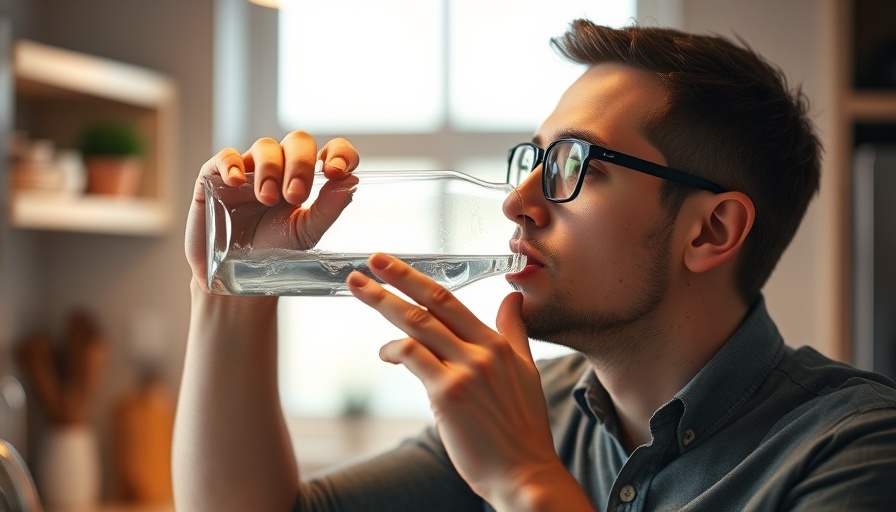
The Importance of Staying Hydrated
For many of us, especially those aged over 55, staying hydrated is a crucial aspect of maintaining good health. As temperatures rise, so do the risks associated with dehydration, including heatstroke, which can become particularly dangerous. Recent developments in technology have introduced the concept of wearable hydration monitors aimed at helping individuals manage their hydration levels effectively. These devices, designed to be user-friendly, track the body's water levels in real time, providing critical insights right through your smartphone.
How Wearable Hydration Monitors Work
The wearable hydration monitor uses advanced sensors to evaluate the moisture levels in your body, sending alerts when hydration is low. For older individuals, who may not recognize thirst as effectively as younger people, this technology serves as a valuable tool to prevent dehydration-related health issues. With real-time tracking, these devices empower users to make informed decisions about their fluid intake.
Recognizing the Signs of Dehydration
Understanding the signs of dehydration is vital, especially for older adults. Symptoms may not always be as obvious as feeling thirsty. Common indicators include dry mouth, fatigue, dizziness, and confusion. Having a wearable device that consistently monitors hydration can help mitigate these risks. For example, if you are spending time outdoors during the sweltering summer, your wearable monitor can remind you to drink more fluid—this proactive approach can make a significant difference.
The Science Behind Hydration Technology
This innovative technology isn't just a trend; it is backed by scientific research aimed at enhancing well-being. Studies show that higher hydration levels can improve cognitive functions, boost energy, and enhance mood. For older adults, efficient hydration can also lead to better physical performance and help in the prevention of chronic conditions like kidney stones and urinary tract infections.
Impact on Heatstroke Prevention
Heatstroke is a serious condition that occurs when the body overheats, and it can be exacerbated by dehydration. For communities in hot climates like Louisiana, preventive measures are essential. Wearing a hydration monitor can lead to quicker responses to dehydration signs, reducing the risk of heatstroke during the summer. Ensuring that hydration levels are adequate, particularly when involved in outdoor activities, is crucial for health and safety.
Empowering Health Decisions with Technology
This wearables trend underscores the growing intersection of health and technology. Many health professionals emphasize educating older adults about the benefits of utilizing digital health tools. For example, Grossman and colleagues found that individuals who actively engaged with their health-monitoring devices reported better overall health outcomes. These insights can lead to informed choices about diet and lifestyle.
Personal Testimonials
Users of hydration monitors have shared positive experiences about how these devices have transformed their daily routines. One Louisiana resident, who began using a hydration monitor last summer, noticed that she felt more energetic and engaged in her activities. "It's like having a friend reminding me to drink water!" she expressed. The device not only served as a hydration prompt but also offered peace of mind during outdoor excursions.
A Call to Action: Embrace Hydration Monitoring
As we embrace technology's potential to enhance our well-being, it is time for our community, especially those over 55, to take hydration seriously. Investing in a wearable hydration monitor could provide critical health benefits, and ultimately, peace of mind. Be proactive—monitor your hydration levels and understand when to refuel your body. Protect your health in the face of rising temperatures this summer!
Final Thoughts
Innovation in health technology is evolving, and wearable hydration monitors highlight a significant step forward. The benefits of these devices extend beyond mere convenience; they empower us to take control of our hydration needs and make informed health decisions. Staying hydrated is not just a suggestion; it is vital, especially for older adults. By making hydration a priority, we can enjoy healthier, more active lives.
 Add Row
Add Row  Add
Add 



Write A Comment